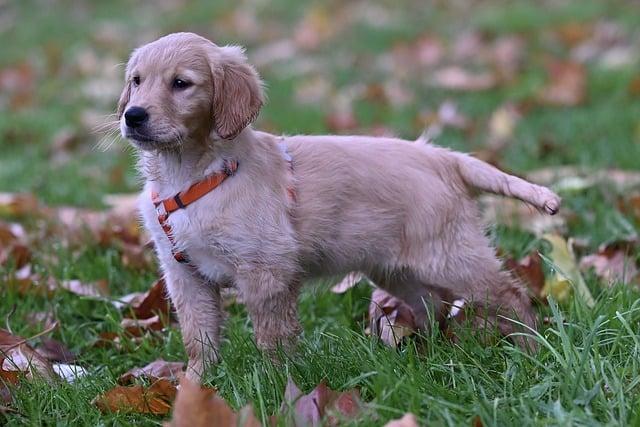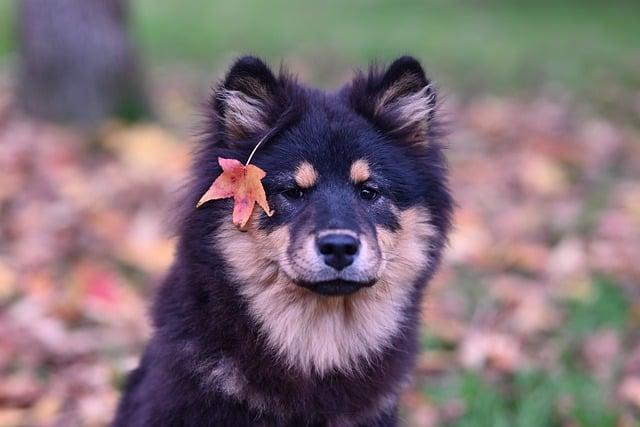Imagine a sunny afternoon, where you’re relaxing on the couch, only to be interrupted by your dog’s relentless licking. It’s sweet at first, but soon it becomes overwhelming. You love your furry friend, but enough is enough! To stop this behavior, redirect their attention with toys or treats, and establish boundaries with consistent commands. Remember, positive reinforcement works wonders! With patience and training, you can enjoy cuddles without the constant slobber. Take control today for a happier, cleaner bond!
Contents
- Understanding the Reasons Behind Excessive Licking Behavior
- Effective Training Techniques to Curb Licking Habits
- Creating a Positive Environment to Deter Licking
- Health Considerations and When to Consult a Veterinarian
- Q&A
Understanding the Reasons Behind Excessive Licking Behavior
Excessive licking in dogs can stem from a variety of underlying reasons, each requiring careful consideration. One common cause is **anxiety or stress**. Dogs may lick as a self-soothing mechanism when they feel overwhelmed or insecure. This behavior can be exacerbated by changes in their environment, such as moving to a new home, the arrival of a new pet, or even loud noises like thunderstorms. Recognizing the signs of anxiety in your dog is crucial to addressing the licking behavior effectively.
Another factor contributing to this behavior is **boredom or lack of stimulation**. Dogs are naturally curious and active creatures that require mental and physical engagement. If they are not receiving enough exercise or interactive playtime, they may resort to licking as a way to entertain themselves. Providing a variety of toys, engaging in regular walks, and incorporating training sessions can help alleviate this boredom and redirect their energy.
Medical issues can also play a significant role in excessive licking. Conditions such as **allergies, skin irritations, or infections** can lead to discomfort, prompting your dog to lick the affected area. It’s essential to consult with a veterinarian to rule out any health concerns that may be causing this behavior. Early intervention can prevent further complications and ensure your dog’s well-being.
Lastly, **habitual behavior** can develop over time, where licking becomes a learned response to certain situations. If a dog receives attention or affection when they lick, they may continue the behavior to seek more interaction. It’s important to establish boundaries and redirect their focus to more appropriate behaviors. By understanding the root causes of excessive licking, you can implement effective strategies to help your dog feel more secure and content, ultimately reducing the licking behavior.
Effective Training Techniques to Curb Licking Habits
When addressing excessive licking in dogs, it’s essential to implement training techniques that are both effective and compassionate. One of the most successful methods is **positive reinforcement**. This involves rewarding your dog for exhibiting desirable behaviors instead of punishing them for licking. Whenever your dog refrains from licking, offer treats, praise, or playtime. This approach not only encourages good behavior but also strengthens the bond between you and your pet.
Another technique to consider is **redirecting their attention**. Dogs often lick out of boredom or anxiety, so providing them with engaging activities can help curb this habit. Introduce interactive toys, puzzle feeders, or even new training exercises to keep their minds stimulated. When you notice your dog starting to lick, gently redirect their focus to these alternatives. This will help them associate play and engagement with positive experiences rather than licking.
Establishing a consistent **routine** can also play a crucial role in reducing licking behaviors. Dogs thrive on predictability, and a structured schedule can alleviate anxiety that may lead to excessive licking. Incorporate regular exercise, playtime, and training sessions into your daily routine. A well-exercised dog is less likely to engage in unwanted behaviors, including licking. Additionally, ensure that your dog has a comfortable and safe space to relax, which can further reduce stress-related licking.
Lastly, consider consulting with a **professional trainer or behaviorist** if licking persists despite your efforts. They can provide tailored strategies and insights specific to your dog’s behavior. Sometimes, underlying medical issues can contribute to excessive licking, so a vet check-up is also advisable. By combining professional guidance with your training techniques, you can effectively address and minimize licking habits, leading to a happier and healthier relationship with your furry companion.
Creating a Positive Environment to Deter Licking
Creating a nurturing atmosphere is essential for curbing unwanted licking behaviors in dogs. A positive environment not only promotes good habits but also strengthens the bond between you and your furry friend. To achieve this, consider implementing the following strategies:
- Establish a Routine: Dogs thrive on consistency. By setting a daily schedule for feeding, walks, and playtime, you provide structure that can reduce anxiety and the urge to lick.
- Provide Mental Stimulation: Engage your dog’s mind with puzzle toys, training sessions, or interactive games. Keeping their brain busy can distract them from licking and channel their energy into more productive activities.
- Encourage Positive Interactions: Reward your dog for calm behavior with treats or praise. This reinforces the idea that being relaxed and not licking is a desirable trait.
- Create a Safe Space: Designate a cozy area where your dog can retreat when feeling overwhelmed. A comfortable bed or crate can serve as a sanctuary, helping to alleviate stress that may lead to excessive licking.
Incorporating physical activity into your dog’s daily routine is another effective way to foster a positive environment. Regular exercise not only helps to burn off excess energy but also promotes overall well-being. Activities such as walks, fetch, or agility training can significantly reduce anxiety levels, making your dog less likely to resort to licking as a coping mechanism.
Socialization plays a crucial role in a dog’s behavior. Exposing your dog to various environments, people, and other animals can help them become more confident and less prone to licking out of nervousness. Arrange playdates with other dogs or take them to dog parks, ensuring these experiences are positive and rewarding.
Lastly, consider the role of your own behavior in shaping your dog’s actions. Dogs are highly perceptive to their owners’ emotions and reactions. By remaining calm and composed, you can create a serene atmosphere that discourages licking. If your dog begins to lick, redirect their attention gently without scolding, reinforcing the idea that calmness is the way to go.
Health Considerations and When to Consult a Veterinarian
While occasional licking is a normal behavior for dogs, excessive licking can sometimes indicate underlying health issues. If your dog’s licking becomes compulsive or is accompanied by other concerning symptoms, it’s important to take note. Look for signs such as:
- Redness or irritation on the skin
- Hair loss in the areas being licked
- Changes in appetite or weight
- Frequent scratching or biting at the skin
In some cases, excessive licking can be a sign of allergies, anxiety, or even pain. Allergies can stem from environmental factors, food, or parasites, leading your dog to lick as a way to soothe discomfort. If you notice your dog licking more than usual, consider whether they have been exposed to any new foods, products, or environments that could trigger an allergic reaction.
Behavioral issues can also manifest through excessive licking. Dogs may lick to cope with stress or anxiety, especially during changes in their environment, such as moving to a new home or the arrival of a new family member. If you suspect that your dog’s licking is related to anxiety, it may be beneficial to consult with a veterinarian or a professional dog trainer to explore behavioral modification techniques.
Ultimately, if your dog’s licking behavior persists despite your efforts to redirect it, or if you observe any of the aforementioned symptoms, it’s crucial to seek veterinary advice. A veterinarian can perform a thorough examination, recommend appropriate tests, and provide guidance on treatment options tailored to your dog’s specific needs. Early intervention can make a significant difference in your dog’s health and well-being.
Q&A
-
Why does my dog lick me?
Dogs lick for various reasons, including affection, anxiety, or to explore their environment. Understanding the motivation behind your dog’s licking can help you address the behavior effectively.
-
How can I discourage my dog from licking me?
To discourage licking, consider the following strategies:
- Redirect their attention with toys or treats.
- Use positive reinforcement to reward alternative behaviors.
- Establish clear boundaries and consistently enforce them.
-
Is it harmful if my dog licks me?
While occasional licking is generally harmless, excessive licking can lead to skin irritation or the transmission of bacteria. It’s essential to monitor the behavior and take action if it becomes excessive.
-
When should I consult a veterinarian?
If your dog’s licking is persistent, excessive, or accompanied by other concerning symptoms, it’s wise to consult a veterinarian. They can help rule out underlying health issues that may be contributing to the behavior.
addressing your dog’s licking behavior is essential for a harmonious relationship. By understanding the reasons behind it and implementing consistent training techniques, you can foster a more respectful bond with your furry friend. Take action today!

大家好,我是彼得潘,專業的手法身體治療師。我喜歡探索和研究各種主題,並透過與人工智慧的合作分享專業、實用、有趣的文章。我們定期進行人工審核,以確保內容的準確性。如果您發現文章中有任何不準確的地方,請隨時與我們聯繫,我們會及時糾正。您可以透過 [email protected] 與我們聯繫。



